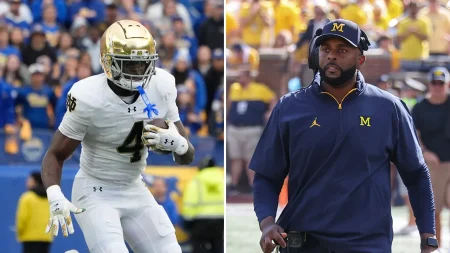The story of Ryan Caldwell, a Philadelphia Eagles fan, highlights the double-edged sword of virality in the digital age and the consequences of unchecked behavior, particularly within the charged atmosphere of professional sports. Caldwell’s verbal assault on a Green Bay Packers fan, Ally Keller, during a playoff game, captured on video and subsequently disseminated online, ignited a firestorm of criticism, ultimately leading to his termination from his job as a project manager. The incident sparked a broader conversation about fan behavior, the role of social media in dispensing justice, and the enduring reputation of Philadelphia Eagles fans for unruly conduct.
Caldwell, in a statement following the incident, expressed remorse for his actions, apologizing to Keller, his family, friends, former employer, and the wider football community. While acknowledging the unacceptable nature of his words, he also alluded to provocation and asserted that the viral video did not provide the full context of the interaction. This attempt to mitigate the damage, however, was largely met with skepticism and derision online, as many viewed his apology as insufficient given the severity of his verbal attack. The rapid spread of the video, coupled with the perceived inadequacy of his response, cemented the narrative of Caldwell as a symbol of toxic fandom.
The online reaction to the incident ranged from celebratory pronouncements of “social media justice” to scathing condemnations of Caldwell’s character and behavior. Many commentators reveled in the swift and decisive consequences he faced, viewing his job loss as a fitting punishment for his actions. Others criticized his attempt to deflect blame by citing provocation, arguing that regardless of the circumstances, his language was inexcusable. The incident also fueled existing stereotypes about Philadelphia sports fans, with some suggesting that Caldwell’s behavior was representative of a broader culture of aggression and hostility among Eagles supporters.
The controversy even attracted the attention of conservative commentator Matt Walsh, who, while condemning Caldwell’s actions, also placed partial blame on Keller’s fiancé for bringing her to the game wearing Packers attire. This perspective, while controversial, underscored the often volatile environment of sporting events, particularly when fans of opposing teams are in close proximity. Walsh’s comments touched on the complex dynamics of such situations, acknowledging the potential for provocation while also emphasizing the importance of individual responsibility and appropriate behavior.
The incident involving Caldwell is not an isolated one in the history of Philadelphia sports fandom. The city’s teams, particularly the Eagles, have long been associated with a reputation for raucous and sometimes unruly behavior. This reputation, solidified over decades, includes instances of violence, public intoxication, and general disregard for the well-being of opposing fans. The infamous Veterans Stadium, the Eagles’ former home, was even equipped with a court and jail cells to address fan misconduct, a testament to the perceived need for on-site legal intervention. Past incidents, such as the firing of a flare gun into the crowd during a 1997 game, further contribute to the narrative of Philadelphia fans as being among the most passionate, yet also potentially volatile, in professional sports.
The Ryan Caldwell incident serves as a microcosm of the larger issue of fan behavior in the digital age. The immediacy and reach of social media amplify the consequences of inappropriate actions, transforming individual transgressions into public spectacles. While some celebrate this phenomenon as a form of crowd-sourced accountability, others express concern about the potential for online pile-ons and the lack of due process. Regardless of one’s perspective, the Caldwell incident underscores the power of digital platforms to shape public perception and influence real-world outcomes, raising crucial questions about the appropriate balance between online shaming and traditional forms of justice. The incident also highlights the need for fans to engage in responsible and respectful behavior, recognizing that their actions, particularly in the hyper-connected world of social media, can have far-reaching consequences.













